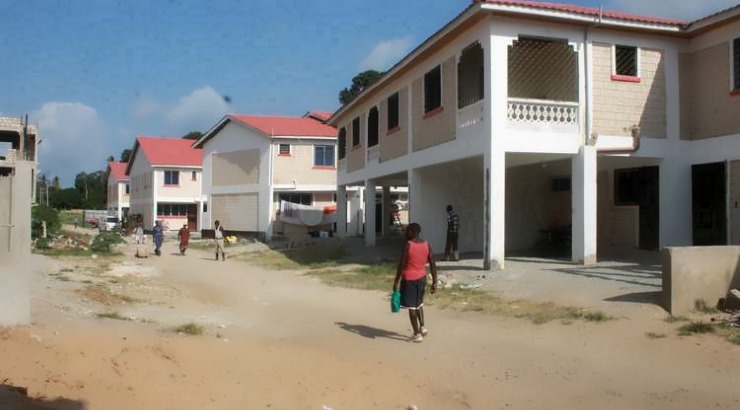Industry News
World Bank Now Tips Kenya on Ways to Solve Housing Crisis
The state should offer incentives to encourage builders to focus on affordable homes.

Kenya must build two million low-cost city homes to bridge its housing demand-supply gap and stem the fast expansion of slums, the World Bank has advised the State.
According to the Bretton Woods Institution, investments in housing will not only help solve the accommodation crisis but will also spur economic growth and strengthen the country’s financial sector.
“Many Kenyans are unnecessarily living in slum dwellings because of limited supply and lack of affordability, the World Bank said in the Kenya Economic Update released on April 12.
The global lender warned that the housing crisis will worsen over the next decade if the government fails to seriously focus on housing and the finance of affordable housing for the average citizen.
The World Bank urged the Kenyan government to come up with tangible incentives that will motivate developers to shift focus to truly affordable homes that can be acquired by low-income earners.
This comes amid the revelation that house prices in the country have registered a ten-fold rise in the past sixteen years– pushing a majority of Kenyans into slums.
The cheapest house in Nairobi, said the World Bank, is now priced at Sh4 million, up from Sh500,000 in 2000. This has rendered over 90 per cent of Kenyans incapable of acquiring the cheapest home.
“In 2013, prices were nearly three times those in 2000, creating fewer opportunities for low –and middle-income families.
“Besides, the lowest priced house already cost Sh1.3 million in December 2012 and, currently, there is almost no supply in the market for homes priced less than Sh4 million, especially in Nairobi,” senior World Bank economist Allen Dennis said in a statement.
RELATED: Kenya’s Low-Cost Housing Market Draws Investors
Kenya needs to build 244,000 homes a year to meet housing demand but less than a quarter of this figure is produced annually.
The situation is further complicated by the fact that the bulk of homes supplied are targeting high-income earners.
This is mainly due to the high cost of land as well as rising construction costs that make it hard for a developer to put up a low-cost house and still make some profit.
Land, which is the most critical element in real estate development, has been overpriced by speculative land dealers.
The local banking sector has aggravated the situation by starving the market of mortgages, which now stand at less than 25,000 loan accounts.
The State recently reduced the corporate tax rate to 15 per cent for developers who put up 400 low-cost houses as part of a plan to boost affordable housing in the country.
However, there are concerns that the impact of the tax cuts may not be felt at all considering that corporate tax is only charged on the developer’s net profit, and, depending on the profit percentage, this could be negligible.














